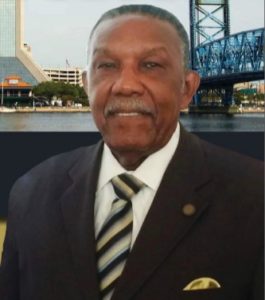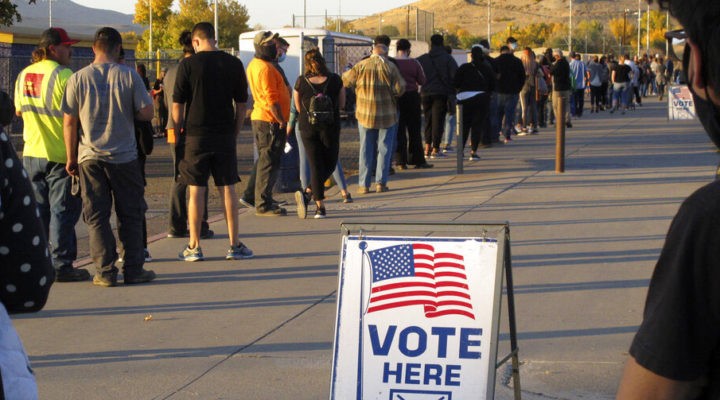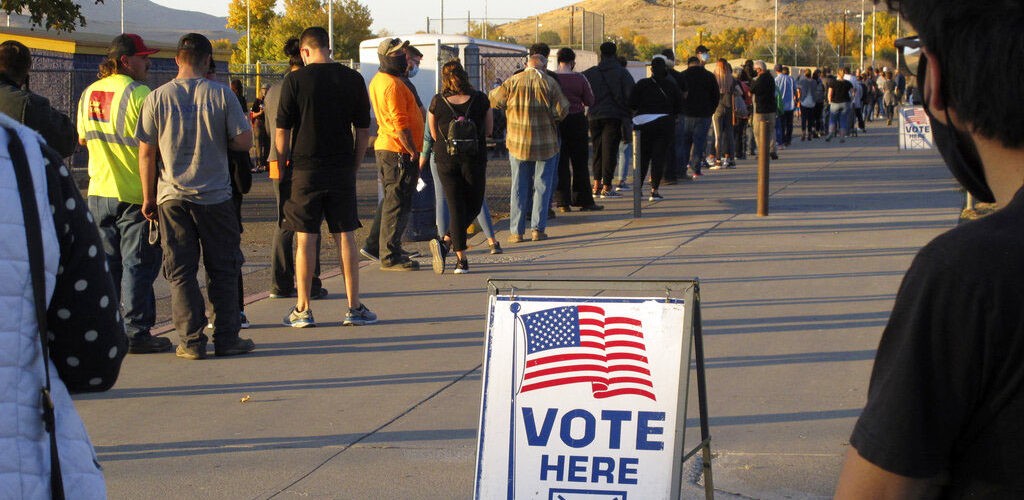Everywhere I go, I meet people of all ages and backgrounds who wonder whether their votes count, whether they can really make a difference. Many of them, sadly but understandably, believe our government no longer works for them.
I get it.
It is easy to see why some people, especially young people of color, might get discouraged when they see the systemic barriers put up to keep them from having a voice in our democracy.

Elder Lee Harris
Today, voter suppression usually doesn’t come in the way of outright violence and intimidation, or outlawed tactics, such as poll taxes and literacy tests. Instead, it happens when election officials use the powers of their bureaucracy to restrict and reduce access to the voting booth.
We saw it as recently as a few months ago here in my home state of Florida, when Duval County’s elections supervisor refused to expand absentee options for the November election, despite a raging pandemic.
We saw it when our governor and state legislature decided to do everything in their power to keep returning citizens — who have paid their debt to society — from reclaiming their right to vote. (They did this in direct opposition to the will of the people, 65% of whom voted in 2018 in favor of restoring the right to vote to former felons.)
And we see it in the number of bills that have come before the Florida Legislature that would make it harder for people to vote in this state. Taken together, these methods of oppression make up a playbook aimed at keeping Black and brown people from fully participating in our democracy.
And Florida is not alone. The latest data from the Brennan Center for Justice show that at least 361 bills have been introduced across 47 states aimed at restricting voting access.
“At least 361 bills have been introduced across 47 states aimed at restricting voting access.”
There never has been a greater need for Congress to take on these threats to our democracy. We are facing daunting public health, economic and racial justice crises. We need a democracy where all our voices are heard and not drowned out by big-money special interest groups.
Earlier this month, the U.S. House passed the “For the People Act,” comprehensive legislation aimed at protecting and expanding voting rights, including restoring the voting rights of those with felony records. The bill also calls for measures to prevent gerrymandering, including an emphasis on not dividing Black and brown communities.
The “For the People Act” is remarkable in its vision and scope. It contains a multitude of ways to reform our democracy, including shining a light on the “dark money” flowing into our elections and holding our government officials to higher ethical standards.
All that remains now is for the Senate to pass this critically important legislation. Sadly, the proposals languished all of last year on former Senate Majority Leader Mitch McConnell’s desk, as he refused to give them a hearing.
“There is finally a chance to help fix our political system and make our government one that puts its citizens first.”
Now, with a new administration and a new Democratic majority in the Senate, there is finally a chance to help fix our political system and make our government one that puts its citizens first and keeps the hope for a more just society alive.
Of course, this opportunity for reform would not have happened if our brothers and sisters in Georgia had not turned out in record numbers to help shift the balance of power in Congress and the White House.
There may be no greater example to show those who have lost faith in the democratic system than to point to the Georgia results as what can happen when we keep fighting, stay engaged — and vote.
Now, the Senate must do its part to show people that elections matter.
Elder Lee Harris is senior pastor of Mt. Olive Primitive Baptist Church of Jacksonville, Fla.


